
For our 2024 rankings, the research team at Nursing Schools Almanac collected data on nearly 3,000 nursing schools and campuses throughout the United States. We evaluated each school on three dimensions:
- The institution’s academic prestige and perceived value
- The breadth and depth of nursing programs offered
- Student success, particularly on the NCLEX licensure examination
We then combined these assessments into an overall score and ranked the schools accordingly. For a detailed description of our assessment methodology and dimension weights, please see here.
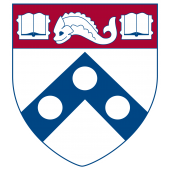
#1: University of Pennsylvania
Penn Nursing’s MSN degree is consistently ranked one of the top programs in the country by U.S. News & World Report. So too are five of its nurse practitioner specialty tracks in their respective categories. In addition, Penn Nursing has received the most NIH research funding of any nursing school in the country over the past five years, including more than $12 million in 2020. Graduates of Penn’s highly selective prelicensure BSN program have averaged a 93% first-time NCLEX pass rate over the past decade. At the doctoral level, the university offers a post-baccalaureate DNP in nurse anesthesia, two post-master’s DNP tracks, and a PhD program that broke ground as the first nursing doctorate in the Ivy League.
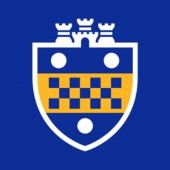
#2: University of Pittsburgh
Pitt Nursing earns high marks from U.S. News & World Report for both its master’s and doctoral programs. Pitt is also consistently ranked among the top five nursing schools nationwide in research funding from the National Institutes of Health. In addition to its graduate offerings, the school teaches traditional and accelerated bachelor’s degree programs, and its BSN students have passed the NCLEX exam at a 90% first-try rate over the past decade. Pitt Nursing has approximately 100 fulltime faculty, 98% of whom hold doctoral degrees. The School of Nursing was recently ranked among the top twenty globally by QS World University Rankings.
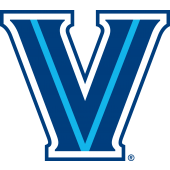
#3: Villanova University
Drawing on its Catholic beliefs and values, Villanova University has provided nursing education for over sixty years. The M. Louise Fitzpatrick College of Nursing typically has more than 700 students enrolled in its undergraduate program. These BSN graduates have exceeded a 94% first-time NCLEX pass rate for five consecutive years. Another 300 students are enrolled across Villanova’s MSN, DNP, and PhD programs. Designated a Center of Excellence by the NLN numerous times, the college boasts 7,000 alumni, 55% of whom live in the tristate area. Over 80% of the college’s fulltime and parttime faculty hold doctoral degrees.

#4: Duquesne University
The School of Nursing at Duquesne University is recognized for creating Pennsylvania’s first BSN program in 1937 and the nation’s first online nursing PhD program in 1997. Duquesne has been designated an NLN Center of Excellence four consecutive times since 2008. In addition to its flagship BSN program, the university offers undergraduates an innovative five-year dual degree program in biomedical engineering and nursing. Duquesne’s BSN graduates have maintained a 91% first-time NCLEX pass rate over the past decade, including a 95.5% pass rate for the most recent graduating cohort. The School of Nursing also provides graduate programs at the master’s, post-master’s certificate, and doctoral levels, including both DNP and PhD options.

#5: Drexel University
Drexel University’s College of Nursing and Health Professions has developed and refined more than 25 undergraduate and graduate nursing programs since 2002. The college currently includes more than 5,000 students, 200 full-time faculty, and 104 staff. Drexel graduates approximately 300-400 traditional BSN students each year with an exemplary NCLEX pass rate of 96% over the past decade. The college’s performance on numerous other board certification and licensing exams is well above average, including recent 100% pass rates for the physician assistant and nurse anesthesia programs.
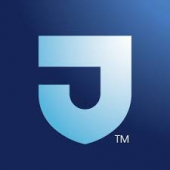
#6: Thomas Jefferson University
Jefferson College of Nursing is one of six colleges dedicated to health sciences education and research at Thomas Jefferson University. Undergraduate students can select from a traditional BSN track and two accelerated pathways. The college graduates 250-300 BSN students in total each year, with an admirable 89% first-time NCLEX pass rate over the past decade. Jefferson also offers an extensive range of graduate nursing programs, with eight distinct specializations available at the MSN and doctoral levels. Students benefit from access to Thomas Jefferson University Hospital, one of the top-ranked hospitals nationwide. The American Nurses Credentialing Center has recognized Jefferson for its quality patient care, nursing excellence, and innovations in professional nursing.
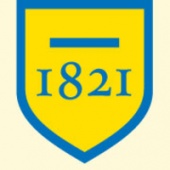
#7: Widener University
Formerly the Crozer College of Nursing, Widener’s School of Nursing opened in 1966 and marked the first time women were admitted as students. The school graduates 100-150 BSN students annually, and they have passed the NCLEX exam at rates as high as 90% in recent years. Widener is particularly recognized for its graduate nursing programs: the school offers five specialty master’s tracks, two doctoral programs (DNP and PhD), and three accelerated graduate options. Students at Widener enjoy an 8:1 student-to-faculty clinical ratio and state-of-the-art facilities at the Center for Simulation and Computerized Testing.

#8: University of Scranton
Established in 1984, Scranton’s Department of Nursing draws from its Jesuit roots and offers nursing education with a strong base in the liberal arts. The department offers traditional BSN, RN-to-BSN, LPN-to-BSN, MSN (with four specialty tracks), and DNP programs. Students benefit from small class sizes and a strong clinical focus, with clinical experiences beginning during sophomore year. Indeed, Scranton’s BSN graduates have passed the NCLEX licensure exam at an impressive 93% rate over the past decade. Undergraduates also have opportunities for research, study abroad, and participation in domestic and international service trips.
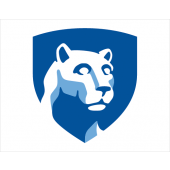
#9: Pennsylvania State University
Penn State’s College of Nursing offer an experience grounded in a student-centered environment with low student-to-faculty ratios. The college’s graduating BSN class of 150-250 students consistently performs very well on the NCLEX exam, with a pass rate as high as 99% in 2017. Undergraduates can study abroad in four international locations to observe different healthcare and nursing education systems. Penn State also offers a breadth of master’s and doctoral nursing degrees, and the school’s Center for Nursing Research provides consulting services for quantitative and analytical work.
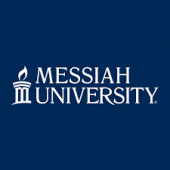
#10: Messiah University
The Department of Nursing at Messiah University recently constructed a state-of-the-art advanced simulation lab. This complements the school’s slate of newly renovated labs including a maternal-child lab, a psychiatric-mental health lab, two basic skills labs, and a physical assessment lab. Messiah also maintains contracts with a wide variety of excellent clinical agencies in the Central Pennsylvania area. In the university’s flagship BSN program, students have achieved an outstanding 97% first-time NCLEX pass rate over the past six years, including a perfect 100% pass rate for the classes of 2019 and 2020. Graduate nursing students can pursue an MSN degree with a nurse educator or nursing administration focus, a post-master’s certificate in either field, or a DNP degree with a family nurse practitioner or nursing leadership focus.
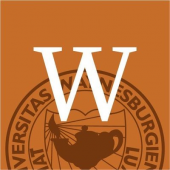
#11: Waynesburg University
Waynesburg University’s nursing programs are offered across the university’s four academic centers, allowing students greater flexibility. The university offers a traditional BSN along with RN-to-BSN, LPN-to-BSN, accelerated BSN, MSN, and DNP programs. Waynesburg maintains a small BSN graduating class of 40-50 students, and these nurses have passed the NCLEX exam at a stellar 98% first-try rate over the past decade. Nursing students at Waynesburg enjoy the recent addition of a state-of-the-art simulation lab.
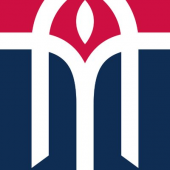
#12: DeSales University
DeSales University established the Department of Nursing and Health in 1974, along with its first BSN program. Today the school offers an abundance of undergraduate and graduate nursing programs. DeSales has both fulltime and part-time study options, and the school partners with more than 300 sites and preceptors to provide clinical experiences. Prelicensure BSN graduates have achieved a 93% first-time pass rate on the NCLEX exam over the past decade, including a 98% pass rate in the 2017-18 academic year. Moreover, MSN graduates have typically earned a 100% pass rate on national certification examinations across all tracks since the program’s inception in 1984.
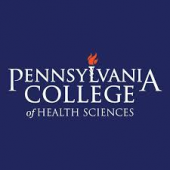
#13: Pennsylvania College of Health Sciences
Pennsylvania College of Health Sciences recently announced the launch of a three-year prelicensure BSN program, the first of its kind in the region. Meanwhile, the school’s existing full-time ADN program has graduated 200-300 students annually with NCLEX pass rates as high as 98% in recent years. PA College also offers an online MSN program with specializations in nursing administration and nursing education, as well as a hybrid post-master’s DNP that features a clinical affiliation with Penn Medicine Lancaster General Health. Students enjoy the college’s recently built 24.7-acre campus with state-of-the-art facilities.
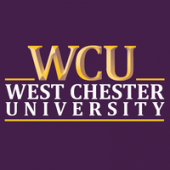
#14: West Chester University
The Department of Nursing at West Chester University offers traditional BSN, second-degree BSN, and RN-to-BSN options at the undergraduate level. The school’s prelicensure students have consistently performed well on the NCLEX exam, passing on the first try at a 91% rate over the past decade. West Chester’s graduate nursing programs include a school nurse certification, an MSN program with nursing education and adult-gerontology tracks, and a DNP program for MSN degree-holders. Students benefit from a variety of clinical experiences including acute care, community health, daycare centers, retirement centers, and veterans’ hospitals.
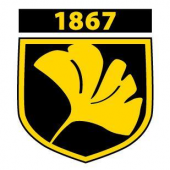
#15: Cedar Crest College
The undergraduate nursing program at Cedar Crest College has posted an NCLEX pass rate of 94% or higher for seven consecutive years, including a perfect 100% (59 out of 59) pass rate for the graduating class of 2019. Many of Cedar Crest’s BSN students pursue a minor or a double major, including popular options like psychology and art therapy. Students can also expand their knowledge and employment opportunities by completing a certificate in gerontology, healthcare management, or school nursing. The graduate nursing curriculum provides a breadth of specialty tracks, including two nurse practitioner concentrations (family/individual across the lifespan, adult-gerontology acute care) offered at the MSN, post-graduate certificate, and DNP levels.
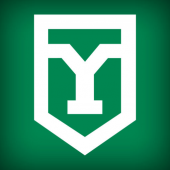
#16: York College of Pennsylvania
York College’s Stabler Department of Nursing offers traditional BSN, RN-to-BSN, MSN, and DNP programs to a total enrollment of nearly 600 students. The school’s flagship BSN program graduates 90-120 students each year, and these graduates have passed the NCLEX exam at an 89% rate over the past decade. Stabler students enjoy personalized attention, with approximately 36 individuals per class and an 8:1 clinical student-to-faculty ratio. York College’s recently renovated nursing building, Diehl Hall, includes state-of-the-art simulation rooms and critical care equipment.
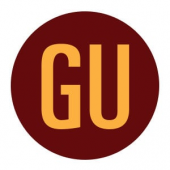
#17: Gannon University
Gannon University’s Villa Maria School of Nursing boasts a nearly 100% job placement rate for graduates. Over the past decade, the school’s traditional BSN students have passed the NCLEX exam at a stellar 92% first-try rate, well above state and national averages. Gannon also offers an online RN-to-BSN program, four distinct MSN programs, and a DNP. Students benefit from a low 10:1 student-to-faculty ratio and at least 980 hours of hands-on experience before graduation. The university also hosts the region’s largest technically advanced Patient Simulation Center, located in the Morosky College of Health Professions and Sciences.
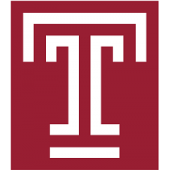
#18: Temple University
The College of Public Health at Temple University offers both BSN and DNP degree programs. The BSN curriculum has three entry points: a freshman option for high-performing high school graduates, a transfer option for current Temple students, and an external transfer option for applicants who are enrolled in another college or university. Qualified nursing students can join Temple’s Honors Program to take advantage of smaller course sizes, priority course registration, and enhanced networking opportunities. Over the past decade, the university has graduated roughly 60-100 BSN students annually with a stellar 91% first-time pass rate on the NCLEX licensure exam. Temple’s DNP program is one of the few offered in the Philadelphia metropolitan area. The curriculum offers two clinical tracks, with entry options for both BSN and MSN degree-holders.
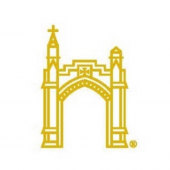
#19: Misericordia University
The College of Health Sciences at Misericordia University provides flexibility in its program offerings. The undergraduate division offers a traditional four-year BSN, a part-time evening BSN, a full-time second-degree BSN, and an accelerated RN-to-BSN program. At the graduate level, Misericordia offers an MSN with FNP specialization option, an FNP post-master’s certificate, and an online DNP. The school’s BSN program is the oldest such offering in Northeastern Pennsylvania and the largest discipline within the college. Students from the program have passed the NCLEX exam at rates as high as 96% in recent years.
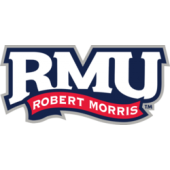
#20: Robert Morris University
Robert Morris University’s Department of Nursing educates several hundred students annually. The school’s BSN graduates consistently pass the NCLEX licensure examination at an impressive rate. In fact, the NCLEX pass rate for first-time test takers has exceeded 90% in six of the past seven academic years. RMU’s doctoral nursing graduates also perform extremely well on standardized tests, with a 96% pass rate on the nurse practitioner certification exam in one recent year. Students enjoy a low 8:1 student-to-faculty ratio in clinical settings. Over 50% of undergraduates take advantage of the school’s well-established study abroad options.
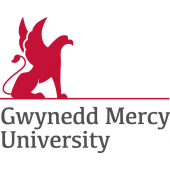
#21: Gwynedd Mercy University
GMercyU’s Frances M. Maguire School of Nursing and Health Professions has educated nurses for more than sixty years. At the undergraduate level, the school offers a range of prelicensure BSN pathways including traditional, three-year transfer, weekend, and accelerated formats. GMercyU graduates approximately 300 BSN students annually, with an 86% first-time NCLEX pass rate since the program’s inception. At the graduate level, GMercyU has an online DNP program, a post-master’s nurse practitioner certificate, and four MSN tracks: direct entry, adult-gerontology primary care nurse practitioner, family nurse practitioner, and pediatric primary care nurse practitioner. Nursing students benefit from the university’s 200+ affiliations with regional healthcare facilities, such as Children’s Hospital of Philadelphia, Doylestown Hospital, and Abington Memorial Hospital.
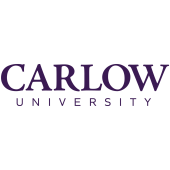
#22: Carlow University
Founded in 1948, the Department of Nursing at Carlow University prides itself on innovation, integrating art and science with a high-touch and high-tech approach. The school offers a range of undergraduate, master’s, and doctoral nursing programs including a dual-degree MSN-MBA option. Carlow’s BSN students have maintained an NCLEX pass rate of 92% over the past decade. In fact, in two of the last four years, 100% of the Department of Nursing’s BSN graduates passed the NCLEX exam on their first attempt.

#23: Wilkes University
The Passan School of Nursing at Wilkes University offers a full complement of programs at both the undergraduate and graduate levels. Students seeking a BSN degree can pursue a traditional, accelerated, or LPN-to-BSN pathway. Wilkes University graduates 70-100 students annually from its BSN program, and they have scored an impressive 92% first-time pass rate on the NCLEX licensure exam since 2016. Graduate options include an MSN degree with six concentrations and both types of doctoral nursing programs (DNP and PhD). Graduate nurses can concentrate in education, executive leadership, informatics, or three nurse practitioner fields (adult-gerontology primary care, family, psychiatric-mental health). Coursework for all graduate programs may be completed entirely online.

#24: Chatham University
Chatham University offers RN-to-BSN, MSN, and DNP programs in nursing. The RN-to-BSN option is designed for practicing RNs and offered online through the College of Continuing and Professional Studies. Chatham’s graduate nursing program includes specialty tracks in education and leadership / management. The school redesigned its online MSN program in 2013; modeled after the DNP program, it offers three tracks: leadership, education, and informatics. In 2015 the school introduced its first international track in the MSN program and had 21 Chinese nurses learning at Chatham.
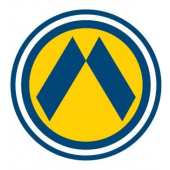
#25: La Salle University
La Salle University’s School of Nursing and Health Sciences prepares its students to provide care to underserved, diverse populations. Indeed, this is a core way the university delivers on its mission of service rooted in solidarity and justice. Nursing degree programs run the gamut from traditional and bridge BSN pathways to graduate-level MSN and DNP offerings. The school also offers a full complement of certificates including adult-gerontology (both CNS and NP), family nurse practitioner, nursing administration, nursing education, public health nursing, and school nursing. Students hone their skills in state-of-the-art simulation labs and clinical spaces with the assistance of experienced faculty. BSN students have scored an exceptional 95% first-time NCLEX pass rate over the past four years.
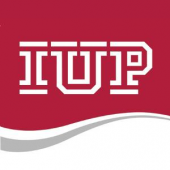
#26: Indiana University of Pennsylvania
With an admirable 94% first-time pass rate on the NCLEX licensure exam over the past decade, IUP’s Department of Nursing and Allied Health Professions is recognized for its excellence. In addition to four- and five-year BSN programs, the department offers MSN tracks in administration and education, two PhD pathways, and several healthcare certificates. IUP strives for state-of the-art facilities: the nursing department introduced its first simulation laboratory in 2007 and recently received a $300,000 federal grant to fund a second one.

#27: Clarion University
Clarion University’s College of Health Sciences and Human Services offers the full gamut of nursing programs at all degree levels. The university’s two-year ADN program efficiently prepares technical nurses to provide client-centered care. ADN graduates have achieved a solid 85% pass rate on the NCLEX licensure exam over the past decade, including an impressive 100% pass rate for the class of 2016. At the baccalaureate level, Clarion offers both a traditional undergraduate program and a three-semester RN-to-BSN pathway. Graduate students may pursue an MSN degree with a family nurse practitioner focus or an online MSN-to-DNP program that covers leadership, policy, population health, and clinical practice.
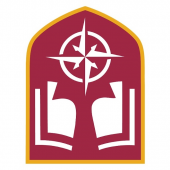
#28: Alvernia University
Alvernia University offers two pathways to a BSN degree (traditional, online RN-to-BSN) as well as a full slate of MSN and DNP programs. The undergraduate program has a track record of success on the NCLEX licensure exam: students have averaged a stellar 95% pass rate over the past seven years. BSN coursework covers a breadth of critical topics including leadership and ethics, geriatric nursing, family and community nursing, cultural competency, and informatics. The MSN degree offers specializations in nursing leadership and healthcare administration, nursing education, and healthcare informatics. The DNP program has two post-BSN nurse practitioner tracks (adult-gerontology, family) and two post-MSN leadership tracks (clinical, health systems).
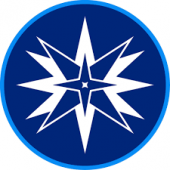
#29: Moravian University
Moravian University offers a breadth of undergraduate and graduate pathways through the Helen S. Breidegam School of Nursing and Public Health. Undergraduate students can pursue one of three BSN options: a traditional four-year curriculum, a 16-month accelerated pathway for college graduates, and an RN-to-BSN completion program. The school’s prelicensure BSN graduates have achieved a 90% first-time pass rate on the NCLEX-RN licensure exam over the past decade. At the graduate level, Moravian has an MSN program that prepares clinical nurse leaders, nurse administrators, nurse educators, family nurse practitioners, and adult-gerontology nurse practitioners. The AGNP focus has both acute care and primary care options. The university also conducts post-master’s certificates in all MSN specialization areas, as well as a unique MSN/MBA dual degree program.
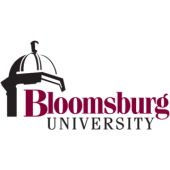
#30: Bloomsburg University
Bloomsburg University’s Department of Nursing offers several nursing degree options. Undergraduates can enroll in the school’s traditional BSN program, whose students have achieved an astounding 97% first-time pass rate on the NCLEX exam over the past decade. The BSN program has a small graduating class of 60-100 students each year, enabling close interaction with faculty. Existing nurses may opt instead for the school’s RN-to-BSN or RN-to-MSN program, both geared towards ADN- or diploma-educated nurses. Graduate students can pursue specialization as a family nurse practitioner, adult-gerontology nurse practitioner, nurse anesthetist, or nursing administrator.
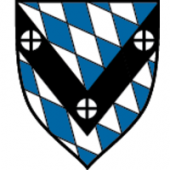
#31: Saint Vincent College
Saint Vincent College offers two innovative and collaborative programs in the nursing arena. At the undergraduate level, the college has partnered with Carlow University to deliver the Carlow BSN program on the Saint Vincent campus. Students complete all coursework in Latrobe, beginning clinical nursing courses during their sophomore year. Clinical rotations take place at a variety of regional sites, including nearby Excela Health locations and Children’s Hospital of Pittsburgh. At the graduate level, Saint Vincent College teams up with Excela Health to deliver a nurse anesthesia program. The Excela Health School of Anesthesia recently transitioned this offering from a 27.5-month Master of Health Science in Nurse Anesthesia to a 36-month Doctor of Nurse Anesthesia Practice.
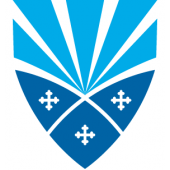
#32: Holy Family University
The School of Nursing & Allied Health Professions at Holy Family University has a variety of degree programs at the undergraduate and graduate levels. Undergraduate pathways include the traditional four-year BSN, second degree ABSN, and accelerated RN-to-BSN. Prelicensure BSN students have consistently performed well on the NCLEX exam, posting an 89% first-time pass rate over the past decade. Graduate options include an MSN with nursing administration and nursing education certificates, as well as a new blended DNP program. Holy Family University is noted for its low student-to-faculty ratio in clinical settings, simulation in every course through the school’s simulation lab, and exposure to a variety of hospital systems and clinical placements in Pennsylvania and New Jersey.
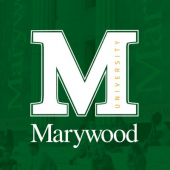
#33: Marywood University
Marywood University’s tight-knit community of 3,000 students enjoys a low 12:1 student-to-faculty ratio on the school’s scenic 115-acre campus. The Department of Nursing offers three undergraduate pathways, including the core prelicensure BSN program as well as bridge programs for LPNs and RNs. The BSN curriculum combines the liberal arts and sciences, applying them to nursing care and practice. Students are prepared for intermediate to upper-level positions at a variety of healthcare facilities such as hospitals, clinics, and nursing homes. Marywood graduates a small prelicensure class of 20-35 students annually. These individuals have averaged an 86% first-try pass rate on the NCLEX exam over the past decade.
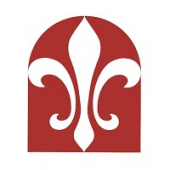
#34: La Roche University
La Roche University offers several educational pathways through its Nursing Department. At the undergraduate level, La Roche conducts online RN-to-BSN and RN-to-MSN degree completion programs. A school nurse certificate is also available for BSN-prepared RNs or those who are currently enrolled in La Roche’s RN-to-BSN program. At the graduate level, the university recently launched an entry-level MSN program, which provides an accelerated path to RN licensure for students who already hold a baccalaureate degree in a non-nursing field. La Roche’s MSN program has specialty tracks in nursing administration, nursing education, and clinical nurse leader. Graduate students can also pursue a post-master’s certificate in any of these fields.
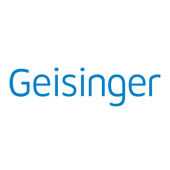
#35: Geisinger Lewistown Hospital School of Nursing
Geisinger Lewistown Hospital School of Nursing offers an RN diploma program with two tracks: a traditional two-year curriculum and an LPN-to-RN bridge. The latter track grants advanced placement to practical nurses with a current unencumbered license, allowing them to bypass the first semester of coursework. The school’s graduates enjoy excellent outcomes. Over the past decade, students have averaged a 97% first-time pass rate on the NCLEX-RN licensure exam. Indeed, seven of the past nine graduating classes scored a perfect 100% pass rate.
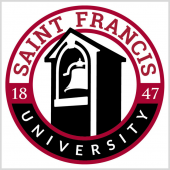
#36: Saint Francis University
Graduates of the Saint Francis University BSN program have achieved a perfect 100% pass rate on the NCLEX exam six of the past seven years, and they’ve maintained an impressive 97% pass rate over the past decade. In addition to the BSN degree, Saint Francis University’s School of Health Sciences and Education offers an MSN with a leadership / education track. The program is offered online with two required residencies, and it can be completed in just 26 months. Saint Francis students benefit from small class sizes, a strategically planned sequence of courses, start-of-the art simulation centers, and clinicals that take place at major local hospitals and healthcare facilities.
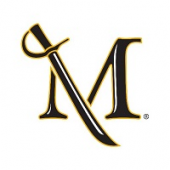
#37: Millersville University
Millersville University’s Department of Nursing offers both bachelor’s and master’s degree programs for licensed nurses. At the undergraduate level, Millersville offers an RN-to-BSN program in two formats: traditional (a mix of online and face-to-face) and 100% online. At the graduate level, the school has an MSN program for nurses who wish to pursue an advanced practice role like family nurse practitioner or nurse educator. In addition, Millersville offers a DNP program for RNs who already have a master’s degree in a related area, such as an MSN or an MPH. This 36-credit-hour program is structured for flexibility and part-time study, with a mix of blended, online, and face-to-face courses.

#38: St. Luke’s School of Nursing
St. Luke’s Hospital was just the fourth hospital in the country to operate a school for nurses. Today St. Luke’s School of Nursing is the nation’s oldest nursing school in continuous operation, with nearly 4,500 RN diploma graduates over the course of its 135-year history. Students are introduced to patient care in the hospital setting during the first semester of the program. Clinical training is provided at St. Luke’s University Hospital in Bethlehem as well as other local acute, chronic, and community care sites. St. Luke’s School of Nursing graduates 50-100 students annually, and they have averaged a strong 93% NCLEX pass rate over the past decade. The class of 2018 enjoyed a 97% nursing employment rate within nine months of graduation.
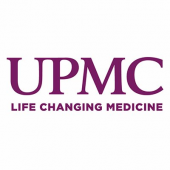
#39: UPMC Shadyside School of Nursing
Since graduating its first class in 1887, UPMC Shadyside School of Nursing has educated more than 4,000 men and women. The school has been recognized as an NLN Center of Excellence multiple times for its diploma program in registered nursing. Typically 100-200 students graduate from the program each spring, posting solid NCLEX pass rates as high as 97% in recent years. UPMC Shadyside maintains an 8:1 student-to-faculty ratio in most clinical courses, and the school offers both parttime and fulltime study options. Over the past several years, graduates from UPMC Shadyside have achieved close to a 90% job placement rate.
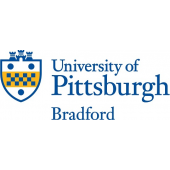
#40: University of Pittsburgh at Bradford
Pitt-Bradford offers a traditional ADN program and two BSN pathways (1+2+1, RN-to-BSN). The ADN program follows a two-year curriculum with training in a broad range of nursing fields, including maternal-child, medical-surgical, and psychiatric. Graduates of the ADN program have achieved a noteworthy 89% NCLEX pass rate over the past decade, including a perfect 100% pass rate for the classes of 2016 and 2018. The BSN 1+2+1 program allows students to earn both the ADN and BSN degree in just four years, while the RN-to-BSN program can be completed in as little as two years. Pitt-Bradford nursing students can complete their clinical experiences at numerous local hospitals and agencies, including Charles Cole Memorial Hospital, Penn Highlands Elk, the Pennsylvania State Health Department, and Warren General Hospital.
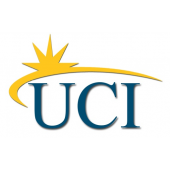
#41: United Career Institute
United Career Institute has served students and employers in southwestern Pennsylvania for more than thirty years. The school offers a direct-admittance LPN program that may be completed in just twelve months at campuses in Mount Braddock and Irwin. The curriculum prepares graduates to take the NCLEX-PN licensure examination and to work in a wide range of healthcare environments, including doctors’ offices, hospitals, rehabilitation centers, clinics, nursing homes, and community or home health agencies. Over the past decade, approximately 200 LPN graduates have taken the NCLEX exam with a stellar 96% first-time pass rate. In fact, the past six cohorts each scored a perfect 100% NCLEX pass rate. United Career Institute offers a dozen partial scholarships, covering up to 15% of tuition for qualified applicants. Alumni are also eligible to receive brush-up training to upgrade their skills at no cost.
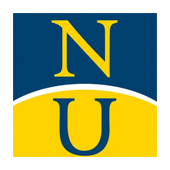
#42: Neumann University
The Division of Nursing and Health Sciences at Neumann University offers a BSN program with impressive outcomes. Students have scored a 91% first-try pass rate on the NCLEX exam over the past decade, and they enjoy an 88% job placement rate within one year of graduation. Neumann nurses are currently employed at Cooper University Hospital System, Thomas Jefferson University Hospital, and the University of Pennsylvania Health System, just to name a few. For RNs seeking an advanced degree, Neumann offers an MSN program (and a post-master’s certificate) with an adult-gerontology primary care nurse practitioner focus. Graduates of either program are eligible to take the AGNP national certification examination and to apply for state licensure as a nurse practitioner.

#43: West Penn Hospital School of Nursing
West Penn Hospital School of Nursing is an institution of many firsts. It was the first nursing school in the nation to admit male students, and one of the first to receive accreditation from the National League for Nursing. More recently, West Penn Hospital was the first hospital in western Pennsylvania to receive Magnet designation from the American Nurses Credentialing Center, a recognition achieved by only 6% of healthcare facilities nationwide. The School of Nursing has graduated nearly 6,000 students over its storied history. The school’s RN diploma program consists of 435 theory hours and 945 clinical hours. Clinical experiences take place in a variety of settings including emergency departments, a long-term mental health facility, and several community treatment centers. The school graduates 35-50 newly minted nurses each year. Over the past decade, these graduates have averaged an 89% first-time pass rate on the NCLEX licensure examination.
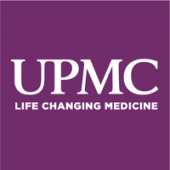
#44: UPMC Jameson School of Nursing
UPMC Jameson School of Nursing was founded in 1895 as the Shenango Valley Training School, part of the eighty-bed Shenango Valley Hospital. In May 2016, Jameson Health System and the University of Pittsburgh Medical Center (UPMC) announced that Jameson had merged into the UPMC network. Thanks to the merger, students in the RN diploma program now receive a variety of clinical experiences at both UPMC Jameson and UPMC Horizon. Students begin interacting with patients during the first week of the program. Over the past decade, Jameson graduates have achieved an impressive 91% first-time pass rate on the NCLEX-RN exam.
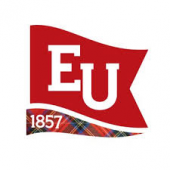
#45: Edinboro University
For those new to the nursing field, Edinboro University has a four-year prelicensure BSN program that combines professional nursing courses and clinical experiences. A 15-month BSN is also available for individuals with a bachelor’s degree in another field. Across these two prelicensure pathways, students have scored an impressive 91% first-time NCLEX pass rate over the past decade. At the graduate level, Clarion and Edinboro Universities have partnered to provide two programs: an MSN degree with a family nurse practitioner specialization, and a post-master’s DNP that requires two internships and a clinical dissertation.

#46: Reading Hospital School of Health Sciences
Reading Hospital School of Health Sciences has prepared students for the nursing profession since 1889. The school’s hospital-based, three-year diploma program provides both a solid theoretical foundation and strong practice-based experience. Reading Health System offers a nationally recognized healthcare environment for clinical experiences, and the program maintains a low student-to-faculty ratio, typically between 8:1 and 10:1. Graduates have achieved a solid 88% first-time NCLEX pass rate over the past decade. The nursing program also holds an affiliation with nearby Alvernia University that facilitates the seamless transfer of academic credit to the university’s RN-to-BSN completion program.
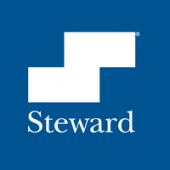
#47: Sharon Regional Medical Center School of Nursing
Sharon Regional Medical Center School of Nursing has a 120-year history preparing students to practice as registered nurses. Sharon Regional partners with Penn State Shenango to offer nursing courses at the School of Nursing and other academic coursework at the university’s campus, located just one mile away. This partnership ensures a seamless transition for graduates into Penn State’s RN-to-BSN program. The School of Nursing graduates a small cohort of approximately twenty students annually. These graduates have averaged a 90% first-time pass rate on the NCLEX-RN licensure exam over the past decade.
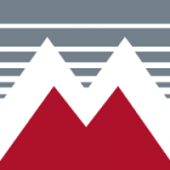
#48: Mansfield University
Mansfield University’s undergraduate nursing program utilizes the latest technology to prepare students for patient care. The program features human patient simulators – life-sized mannequins that cough, breath, have a pulse, and can even talk. The BSN curriculum includes two years of general education and two years of clinical experiences at the Robert Packer Hospital and other acute care medical facilities. Students also have the opportunity to learn in community settings such as nursing homes, elementary and secondary schools, nursery schools, and outpatient clinics. Over the past six years, Mansfield’s BSN graduates have scored an excellent 95% first-time pass rate on the NCLEX-RN licensure exam.

#49: California University of Pennsylvania
California University of Pennsylvania has tailored a number of educational programs to help nurses achieve their goals. For RNs with an ADN or a diploma, Cal U offers a 100% online RN-to-BSN program that transfer students can complete in three terms full-time or four terms part-time. RNs seeking an MSN degree may choose from a nursing administration and leadership track, a nursing education track, and a 54-credit MSN/MBA dual degree. A 24-credit MBA in nursing is also available for nurses who already hold an MSN in nursing administration. For students with no prior nursing education or experience, Cal U offers educational partnerships with Community College of Allegheny County, Heritage Valley Kennedy School of Nursing, and Washington Health System School of Nursing.
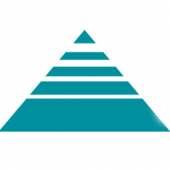
#50: Conemaugh School of Nursing
Conemaugh School of Nursing offers a two-year diploma program with several unique aspects. Students are trained in a simulation laboratory accredited at the comprehensive level by the American College of Surgeons – one of less than 100 such facilities in the world. Students also receive clinical experience in a Level I resource trauma center, a Level III intensive care nursery, and an advanced primary stroke center. Graduates can take advantage of RN-to-BSN articulation agreements with several local colleges and universities, including Carlow University, Chatham University, Drexel University, and Mount Aloysius College. Conemaugh School of Nursing produces 60-75 newly minted nurses each year. These graduates have achieved an impressive 91% first-time pass rate on the NCLEX-RN licensure exam over the past decade.
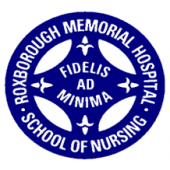
#51: Roxborough Memorial Hospital School of Nursing
Roxborough Memorial Hospital School of Nursing began in 1898, with an initial class of just five female students. Over the past 120 years, the school has graduated more than two thousand men and women. Many graduates hold distinguished positions in nursing leadership and education. Roxborough’s hospital-based RN diploma program is led by experienced faculty, offering hands-on experience and a low student-to-faculty ratio in clinical settings. The program typically graduates between fifty and seventy students per year. Over the past decade, these graduates have averaged a 92% first-time pass rate on the NCLEX licensure exam, including a stellar 98.4% pass rate for the graduating cohort of 2019.
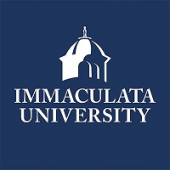
#52: Immaculata University
For nearly 100 years, Immaculata University has delivered liberal education with an emphasis on service. The university’s nursing program offers several undergraduate and graduate pathways. Students new to nursing can pursue a traditional prelicensure BSN degree. This select program of approximately thirty students per cohort has passed the NCLEX exam at a stellar 94% rate over the past four years. Immaculata also offers an RN-to-BSN bridge program on the university’s main campus, at various sites throughout the tri-state area, and fully online. At the graduate level, nurses can pursue a three-year MSN with optional concentrations in nursing administration and nursing education, or a doctor of education (EdD) with a concentration in nursing education.
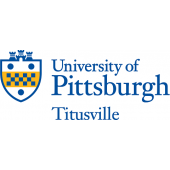
#53: University of Pittsburgh at Titusville
Pitt-Titusville combines a small college academic environment with the resources of a world-class institution. The university’s ADN program is small and selective, with typically fewer than 20 students in each graduating cohort. It is also rigorous, requiring the completion of 72 credits and 800+ clinical hours over a 21-month, five-semester class schedule. Not surprisingly, Pitt-Titusville’s ADN students are well prepared for the NCLEX licensure exam. The school has posted an 89% first-time pass rate over the past decade, with three of the last five graduating classes posting a 100% pass rate. Graduates are strongly grounded in diverse healthcare practices, providing a smooth transition to either nursing practice or higher learning.
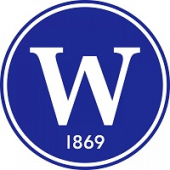
#54: Wilson College
Wilson College nursing students routinely shadow nurses during a 12-hour shift at Summit Health’s Chambersburg Hospital. They also assess residents’ vital signs at the Menno Haven Retirement Community and observe patients at Keystone Health’s public clinics. The goal is to provide hands-on clinical experience as early as possible through the school’s three largest active partners. Undergraduate degree pathways include a traditional BSN curriculum, an LPN-to-BSN bridge, and an online RN-to-BSN completion program. Graduate nursing students can pursue an online MSN with nursing education and nursing leadership tracks. The MSN program allows students to seamlessly continue their nursing education to earn nurse practitioner certification through a partnership with Widener University School of Nursing.

#55: Westminster College
In the fall of 2017, Westminster College launched an innovative nursing program in partnership with UPMC Jameson School of Nursing. Graduates of the four-year collaborative receive both a nursing diploma from UPMC Jameson and a BSN degree from Westminster College. Students spend the first year at Westminster completing pre-nursing sciences and liberal arts courses. Years two and three are conducted primarily at UPMC Jameson, although nursing majors can also take 1-2 courses per semester at Westminster to continue their progression toward the baccalaureate degree. The final year is a postlicensure curriculum of upper-level nursing courses and any remaining graduation requirements. Students in this unique program also have the opportunity to experience global health through Westminster College’s mission programs in the Dominican Republic.
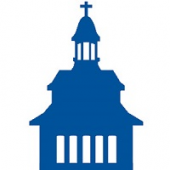
#56: Mount Aloysius College
Mount Aloysius College offers several undergraduate nursing pathways. The college has designed an innovative 2+2 program that combines the ADN and BSN curriculums. Students earn the ADN degree within the first two years of study, enabling them to pass the NCLEX-RN licensure examination and obtain immediate employment as a registered nurse. Indeed, MAC students have earned a strong 91% first-time NCLEX pass rate over the past decade. Progress to the BSN portion of the 2+2 program is then sequenced according to individual career needs and scheduling preferences. Mount Aloysius also conducts several traditional BSN programs including an eight-semester prelicensure pathway, a 16-month accelerated second degree, and an online RN-to-BSN curriculum conducted year-round in eight-week sessions. The college’s multimillion-dollar Nursing Simulation Center features four fully functional hospital units and 19 state-of-the-art manikins, with infant, pregnant, and talk-back models.
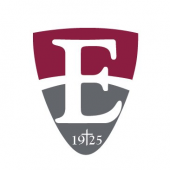
#57: Eastern University
Eastern University’s Nursing Department has several programs that provide hands-on experience in the school’s on-campus Nursing Resource & Simulation facility. Degree offerings include the prelicensure BSN, the second degree BSN, an RN-to-BSN pathway, and an MSN degree. In addition to Eastern’s state-of-the-art facilities, students benefit from off-campus clinicals at major healthcare facilities like Alfred I. duPont Hospital for Children, Friends Hospital, and Chester County Hospital (owned by Penn Medicine). The prelicensure BSN program is selective, with just 20-35 students in each graduating class. These students have achieved a stellar 93% first-time pass rate on the NCLEX-RN licensure exam over the past decade.
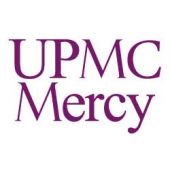
#58: UPMC Mercy Hospital School of Nursing
Founded by the Sisters of Mercy in 1893, UPMC Mercy Hospital School of Nursing has graduated more than 6,000 nurses since its inception. The school’s sponsor, UPMC Mercy, is Pittsburgh’s only faith-based healthcare provider. The school offers a hospital-based registered nursing diploma, with patient interactions starting as early as the first week of the program. Students gain an extensive range of clinical experiences at UPMC Mercy, which holds designations as a Level I Regional Resource Trauma Center and a Primary Stroke Center. Graduates have performed very strongly on their licensure exams, with a first-time NCLEX pass rate as high as 93% in recent years. They have also secured employment in the field, with a typical job placement rate of approximately 90%.

#59: Joseph F. McCloskey School of Nursing
Joseph F. McCloskey School of Nursing is part of Lehigh Valley Health Network. The school offers a fulltime three-year RN diploma program that includes one year of prerequisite courses (typically completed at Penn State Schuylkill) and two years of nursing courses. The School of Nursing is located on the South Jackson Street campus, enabling students to experience a comprehensive range of healthcare settings including emergency care, inpatient and outpatient adult care, maternal-child, medical-surgical, perioperative, and home health services. Approximately thirty students graduate from the RN diploma program annually. These graduates have achieved an 89% pass rate on the NCLEX licensure exam over the past decade.
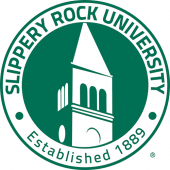
#60: Slippery Rock University
Slippery Rock University is home to one of the earliest online nursing programs in a traditional, regionally accredited university. The school’s Department of Nursing offers an RN-to-BSN program that consists of 39 credits across nine mandatory nursing courses, two nursing electives, and two support courses (Statistics for the Social Sciences and Medical Health Care Ethics). Two flexible eight-week sessions per semester enable full-time RNs to focus on one course at a time. Part-time RNs may accelerate the program by taking three or more courses per semester. Graduates of the Slippery Rock RN-to-BSN program enjoy a 100% job placement rate, with 86% of graduates employed full-time in nursing and 14% employed part-time.
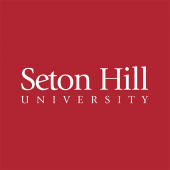
#61: Seton Hill University
Seton Hill University is a Catholic liberal arts institution that offers more than 100 degree programs, minors, and certificates across five schools. Launched in 2019, the Daniel J. Wukich School of Nursing offers a BSN program that is accredited by the Commission on Collegiate Nursing Education. The program provides two pathways: a traditional prelicensure BSN and an RN-to-BSN completion option. Graduates boast a 98% placement rate in either employment or graduate school. Clinical experiences take place in highly regarded local healthcare institutions including Allegheny Health Network, Excela Health, Uniontown Hospital, and University of Pittsburgh Medical Center. The school also offers on-campus clinical experiences in its state-of-the-art Boyle Health Sciences Center.
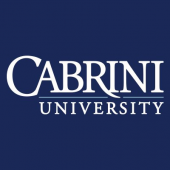
#62: Cabrini University
Cabrini University is a small Catholic institution that serves approximately 2,000 students enrolled in more than fifty programs across three academic schools. The School of Arts and Sciences houses the Nursing Department, which conducts a BSN program that prepares students to pass the NCLEX-RN licensure examination. The curriculum combines intensive coursework, immersive on-campus clinical simulations in Cabrini’s state-of-the-art Clinical Simulation Center, and off-campus clinical experiences at major hospitals and healthcare facilities. Coursework runs the gamut of important nursing topics, including quality and safety, clinical judgement, health assessment, nursing leadership, pathophysiology, pharmacology, and public health. Graduates of the Cabrini University BSN program are prepared to pursue leadership positions in complex healthcare environments.

#63: Washington Health System School of Nursing
Washington Health System School of Nursing was founded in 1897 and proudly claims over 4,000 alumni. The school currently provides a diploma program that requires 16 months for nursing coursework, or 20 months including prerequisites. The school also plans to relaunch a 12-month LPN-to-RN bridge program in the upcoming year. Washington Health System School of Nursing is accredited by the Accreditation Commission for Education in Nursing and fully approved by the Pennsylvania State Board of Nursing. The school graduates a tight-knit cohort of 25-40 students annually. These RN candidates have averaged a 94% first-time NCLEX pass rate over the past decade. The diploma program also routinely boasts a 70-80% on-time graduation rate.

#64: Franklin County Career and Technology Center
Franklin County Career and Technology Center, colloquially known as CareerTech, provides vocational education for high school and adult students. The center is run by a joint operating committee of representatives from the participating school districts. Aspiring nurses can pursue a program in either certified nurse assisting or licensed practical nursing. The CNA program requires two components: sixty-five hours of classroom and lab instruction, and sixty hours of clinical experience at a local healthcare facility. Successful graduates are prepared to sit for the state’s nurse aide examination. The LPN program requires one year of fulltime study and offers two convenient start dates annually. In a typical year, between thirty and fifty students will successfully graduate from the CareerTech LPN program. Over the past decade, these graduates have an excellent 93% first-time pass rate on the NCLEX-PN licensure examination. The classes of 2018 (36 out of 36) and 2020 (41 out of 41) scored a perfect 100% NCLEX pass rate.
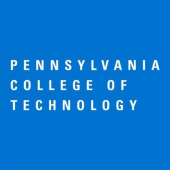
#65: Pennsylvania College of Technology
Pennsylvania College of Technology’s School of Nursing & Health Sciences has programs for those seeking a career in either licensed practical nursing or registered nursing. The school’s 17-month associate of applied science (AAS) degree in health arts carries a practical nursing emphasis. Graduates have scored a solid 90% first-time pass rate on the NCLEX-PN licensure exam over the past decade. Penn College also offers two pathways for its AAS degree in nursing (RN preparation, LPN-to-RN) and two pathways for its BSN degree (traditional, online RN-to-BSN). Over the past decade, the school’s prelicensure students have scored a 93% NCLEX-RN pass rate in the AAS program and a 91% NCLEX-RN pass rate in the BSN program.

#66: Citizens School of Nursing
Citizens School of Nursing is sponsored by Allegheny Valley Hospital, part of the Allegheny Health Network. The school conducts a two-year diploma program over five semesters that include 435 theory hours and 945 clinical hours. The curriculum includes eight elective courses in the natural sciences, humanities, and nursing that may be completed at either Penn State University or Westmoreland County Community College. Citizens School of Nursing is known for its low student-to-teacher ratio and its spacious facilities at a convenient new location in the Pittsburgh Mills mall. The diploma program typically graduates 60-90 RN candidates annually. Over the past decade, these students have achieved an 87% first-time pass rate on the NCLEX licensure examination.
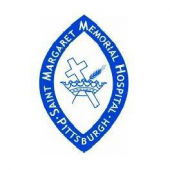
#67: UPMC St. Margaret School of Nursing
UPMC St. Margaret School of Nursing has prepared nurses to serve in northeastern Allegheny County for more than a century. UPMC St. Margaret is a community-based teaching hospital affiliated with the University of Pittsburgh Schools of the Health Sciences. The hospital provides evidence-based care for more than fifty municipalities in the surrounding area. The School of Nursing conducts a 16-month diploma program with impressive student outcomes. Graduates have achieved an 86% first-time pass rate on the NCLEX licensure exam over the past decade. They can also take advantage of UPMC St. Margaret’s partnership with Chatham University to transition seamlessly into the university’s RN-to-BSN degree completion program.
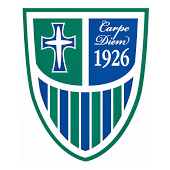
#68: Mercyhurst University
Mercyhurst University has programs for aspiring nurses at all career stages, including an LPN certificate, multiple ADN pathways, an RN-to-BSN completion program, and an online MSN. The LPN certificate requires just one year of full-time study to complete. The traditional ADN has two convenient class schedules: a five-semester, full-time, weekday program and an eight-semester, part-time, evening and weekend program. LPNs may gain advanced standing through Mercyhurst North East’s ADN articulation program. The RN-to-BSN completion program offers a flexible hybrid-learning format that can be completed in one to two years. The MSN is the newest addition to Mercyhurst’s wide-ranging suite of nursing programs, with a fully online curriculum focused on integrative nursing leadership.
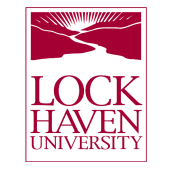
#69: Lock Haven University
Lock Haven University offers three pathways to a nursing degree: the traditional two-year ADN, an advanced placement ADN program for LPNs, and an online RN-to-BSN completion program. The ADN curriculum covers topics like behavioral health, cardiovascular intensive care, geriatrics, maternal-child health, and medical-surgical nursing. Each course is made up of a theoretical component and a clinical component. Students in the LPN-to-ADN pathway enter the program in the second or third semester of the four-semester curriculum. Over the past decade, ADN graduates have averaged a strong 89% first-time pass rate on the NCLEX-RN licensure examination. The Lock Haven RN-to-BSN program covers advanced topics like global nursing issues, leadership, and policy.
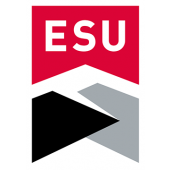
#70: East Stroudsburg University
The Department of Nursing at East Stroudsburg University offers a four-year BSN program that combines a liberal arts foundation with basic preparation in professional nursing. A leadership and management internship at the end of senior year prepares students either for employment in the nursing field or for a smooth transition to graduate study. East Stroudsburg students are prepared to practice in a variety of settings including hospitals, community agencies, physicians’ offices, and long-term care facilities. They are also well-prepared for the NCLEX licensure examination, scoring an 86% first-time pass rate over the past decade.

#71: Huntingdon County Career and Technology Center
Huntingdon County Career and Technology Center offers a practical nursing program with twelve months of classroom education and clinical preparation. The curriculum is divided into three levels, progressing from basic to more complex content, for a grand total of 1,563 hours. Graduates are prepared to perform safe and effective nursing care within any healthcare setting. Huntingdon County Career and Technology Center typically graduates a small cohort of 10-20 LPN students annually. These graduates have averaged an 82% pass rate on the NCLEX-PN licensure exam over the past decade, including a perfect 100% pass rate in both 2017 and 2018.
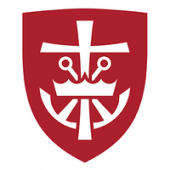
#72: King’s College
King’s College is a Catholic institution in the liberal arts tradition. Founded in 1946 to educate the sons of local miners and mill workers, the college has grown to offer forty-one undergraduate majors and eight graduate programs. Nursing students can choose from either the RN-to-BSN completion program or the 1-2-1 Dual Degrees in Nursing program. The RN-to-BSN curriculum is delivered in a hybrid format with both fulltime and part-time enrollment options; the part-time track launched in the fall of 2018. That same semester, King’s College also enrolled its inaugural class of twenty-six students in the 1-2-1 program. Conducted in partnership with Luzerne County Community College, this innovative pathway enables graduates to earn both an associate of science degree from LCCC and a bachelor of science degree from King’s. Students take the NCLEX-RN licensure examination at the end of their third year of studies, enabling them to practice as registered nurses while competing the final year of coursework.
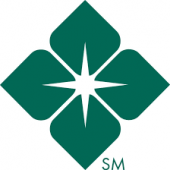
#73: Heritage Valley Kennedy School of Nursing
Heritage Valley Kennedy School of Nursing began offering a three-year nursing diploma in 1901. Today the school’s RN diploma program takes as little as 20 months of fulltime study to complete. The program offers a strong clinical component through the school’s affiliation with Heritage Valley Health System. Class sizes are small with individualized instruction; indeed, each cohort is typically just 15-25 students. Graduates have achieved a strong 89% first-time pass rate on the NCLEX licensure exam over the past decade. The classes of 2018 and 2019 each scored a perfect 100% NCLEX pass rate. Graduates from Heritage Valley Kennedy School of Nursing can transfer into a baccalaureate degree program at several local colleges and universities, including a seamless transition with California University of Pennsylvania to complete the BSN curriculum in just 12 months.
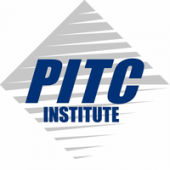
#74: PITC Institute
Originally founded as Princeton Information Technology Center, PITC Institute has more than twenty years of experience providing vocational training to residents of the Philadelphia metropolitan area. The school currently offers courses of study in medical assisting, networking, and licensed practical nursing. The LPN program awards an associate of specialized technology (AST) degree and prepares students to sit for the NCLEX-PN national licensure examination. Between thirty and eighty students graduate from the practical nursing program each year. These LPN candidates have averaged an 80% first-time NCLEX pass rate over the past decade. PITC Institute is noted for its highly qualified instructors, fully equipped laboratory, and recently expanded facilities. Graduates are employed at well-known hospitals and long-term care facilities throughout the region.
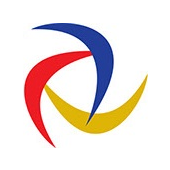
#75: Crawford County Career & Technical Center
The Crawford County Career & Technical Center is the area’s primary provider of vocational training. Adult programs are offered in a broad range of fields including welding, machining, vehicle inspection, commercial driving, and nursing. For over fifty years, Crawford County CTC has conducted a practical nursing certificate program that prepares students for LPN licensure in just 13 months of fulltime study. A new cohort enrolls each August and graduates the following August. Students complete clinical experiences at a variety of local institutions such as Meadville Medical Center, Wesbury Retirement Community, and Rolling Fields Elder Care Community. The LPN program produces approximately 15-20 graduates annually. These students have achieved a phenomenal 99% first-time pass rate on the NCLEX licensure exam over the past decade. Indeed, nine of the past ten graduating classes scored a perfect 100% NCLEX pass rate. The LPN program has also recorded a 100% job placement rate and a 100% on-time completion rate for several years running.
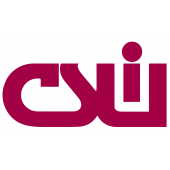
#76: Central Susquehanna LPN Career Center
Over the past fifty years, the Central Susquehanna LPN Career Center has guided many men and women to successful healthcare careers. The center’s practical nursing program offers both a one-year fulltime option and a two-year parttime pathway. The curriculum encompasses 1,547 hours of classroom instruction, laboratory exercise, and clinical practicum. As students progress through the program, the emphasis increasingly shifts towards hands-on clinical experience. The Central Susquehanna LPN Career Center graduates 50-80 students annually across both practical nursing pathways. These students have averaged an impressive 93% first-time pass rate on the NCLEX-PN licensure exam over the past decade. Graduates also enjoy a job placement rate in excess of 90%.
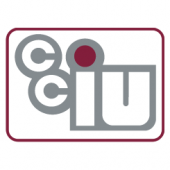
#77: Chester County Intermediate Unit
The Chester County Intermediate Unit provides adult education across a broad range of vocational fields including animal science, barbering, carpentry, electronics, and HVAC/refrigeration. The school’s practical nursing program prepares students to be frontline caregivers in nursing homes, skilled care facilities, rehabilitation centers, and community settings. The curriculum encompasses 1,635 total hours of study across four levels of instruction. Students can leverage affiliation agreements with a number of local clinical sites including Penn Medicine’s Chester County Hospital, Tower Health’s Brandywine Hospital, and Coatesville Veterans Affairs Medical Center. CCIU’s practical nursing program typically graduates between forty and sixty students annually. The school has a remarkable track record of student success on the NCLEX-PN licensure examination, including a 96% first-time pass rate over the past decade.
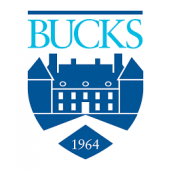
#78: Bucks County Community College
Bucks County Community College provides comprehensive career education across three campuses, a network of satellite facilities, and an online platform that features over 300 e-learning and hybrid courses. The college has two pathways for aspiring RNs: a traditional ADN and an LPN-to-RN program. The traditional ADN program covers the liberal arts, selected sciences, and nursing, while the LPN-to-RN pathway offers a streamlined curriculum for existing LPNs. Over the past decade, graduates of these two programs have achieved a strong 85% pass rate on the NCLEX-RN licensure exam. Bucks County Community College also offers a 12-month practical nursing certificate program. LPN graduates have achieved an impressive 90% pass rate on the NCLEX-PN licensure exam over the past decade.
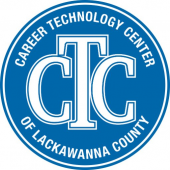
#79: Career Technology Center of Lackawanna County
The practical nursing program at Career Technology Center of Lackawanna County is a 52-week pathway that takes 15 months to complete fulltime. Students will spend half of their time in clinical experiences and half in the classroom. The LPN curriculum progresses through four levels that explore critical areas like community health, medical-surgical nursing, pharmacology, and nursing in the family lifecycle. Supervised clinical experiences are provided at several leading healthcare facilities including Allied Services Integrated Health System, Geisinger Community Medical Center, Wayne Memorial Hospital, and Aveanna Pediatric Day Health Care Centers. CTCLC graduates are extremely well prepared for the NCLEX-PN licensure exam, boasting an outstanding 96% first-time pass rate over the past decade.
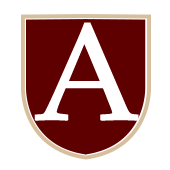
#80: Mifflin County Academy of Science and Technology
Mifflin County Academy of Science and Technology traces its roots in career training back more than fifty years. The academy’s practical nursing program provides approximately 1,540 clock hours of instruction over a twelve-month period. Two cohorts are admitted annually: one in March and one in September. Classes and clinical experiences are both conducted during weekday daytime hours. The Mifflin County LPN program typically produces 20-40 graduates annually. These students have enjoyed an 86% first-time pass rate on the NCLEX-PN licensure examination over the past decade.
